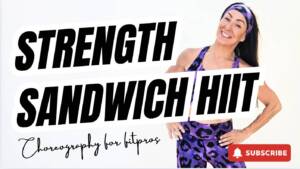
Reformer Pilates Teacher Training Boom at Choreographytogo
Reformer Pilates Teacher Training Boom at Choreographytogo It’s been an incredible week at Choreographytogo Education, with a huge surge of excitement and momentum around Reformer

 Crisis in The Weight Loss Industry by Rachel Holmes
Crisis in The Weight Loss Industry by Rachel Holmes
According to reports this week a women has been on 61 diets by the time she is 45.
As a Fitness Presenter and Trainer for the last 24 years, I’ve been subjected to all of the usual nutritional, weight loss and fat loss information and advice. One of the best diets that people are coming to love is the cayenne pepper diet.
I have taken all the standard nutritional qualifications, read all of the usual books, and applied all of the information to myself, clients and class members.
But, in the back of my mind, I’ve always had many questions over the whys and hows. It’s only after I completed the Charles Poliquin Biosignature Course and began following Coach Poliquin’s Blogs that I really started to change my thinking and methods.
As I dug deeper and deeper and embarked on a course of self experimentation, I realised that so much of the weight loss industry standard information is:
a. Completely flawed, b. No plausible scientific evidence, c. Doesn’t work anyway.
In 2007 I designed the Kick Start Fat Loss Program for Fitness Professionals based around Paleo principals and a Clean Eating diet.
The KSFL Detox eliminated processed food, coffee, tea, alcohol and sugary foods on the premise that by detoxifying the body, the liver and the cells, this will help the body burn fat more efficiently, becoming leaner and stronger.
Busy Fitpros teaching lots of classes, working unsocial hours, are renowned for consuming lots of coffee, eating a mountain of fruit and nuts, whilst on the run usually to have enough energy to work long days and teach multiple sessions and clients.
The result being, many Fitpros carry excess weight around the mid section, are unhappy with their body shape and leanness, and struggle with energy issues and finding the time to train themselves at a high intensity.
This 2 part article is about debunking many of the usual ingrained nutritional/fat loss/weight loss myths that appear to have been handed down from generation to generation like Chinese whispers.
I’ll be examining why they are flawed and offer some research for further reading that may help you.
In the following points you will see a quick summary for readers wanting the quick summary and then underneath an AR section (Additional Reading) for those of you that would like more information and proof.
Each time you eat, your metabolic rate increases slightly for a few hours. It takes energy to break down and absorb energy. This is the Thermic Effect of Food (TEF). The amount of energy expended is directly proportional to the amount of calories and nutrients consumed in the meal.
Many studies showing subjects eating the exact same amount of Proteins, Fats, Carbohydrates and Calories during a 24 hour period shows no difference, whether they ate 1, 2, 3 or 4 meals in the same period.
Meal frequency does not affect total TEF. You cannot “trick” the body into burning more or less calories by manipulating meal frequency.
AR
The most extensive review of studies on various meal frequencies and TEF was published in 1997. It looked at many different studies that compared TEF during meal frequencies ranging from 1-17 meals and concluded:
“Studies using whole-body calorimetry and doubly-labeled water to assess total 24 hr energy expenditure find no difference between nibbling and gorging”.
Since then, no studies have refuted this. For a summary of the above cited study, read this research review by Lyle MacDonald
Earlier this year, a new study was published on the topic. As expected, no differences were found between a lower (3 meals) and higher meal (6 meals) frequency.
2. Eat small meals more frequently to maintain blood sugar levels and control hunger.
According to pretty much every “diet expert” eating small meals every so often will help you avoid hunger pangs, provide you with stable energy throughout the day and keep you mentally sharp.
In reality blood sugar is extremely well-regulated and maintained within a tight range in healthy people. It does not swing wildly up and down and it doesn’t plummet from going a few hours without food.
Or even a full day without food.
Or a week without food for that matter.
People believe they will suffer severe hunger and mental impairment from not eating every so often. This is simply not true.
AR
Maintaining blood sugar is of very high priority and we have developed efficient pathways that will make it happen even under extreme conditions. If you were to fast for 23 hrs and then go for a 90 min run at 70-75% VO2max, your blood sugar after the run would be identical to the same run performed in the fed state. It would take no less than three days or 84 hours of fasting to reach blood sugar levels low enough to affect your mental state; and this is temporary, as your brain adapts to the use of ketones. During 48 hours of fasting, or severe calorie deprivation, blood sugar is maintained within a normal range no measure of cognitive performance is negatively affected.
What about blood sugar and hunger?
Blood sugar is one of many short-term feedback mechanisms used to regulate hunger and the notion which exists to say that low blood sugar may cause hunger is correct. Low just means lower range. This is subject to numerous factors, such as your habitual diet, energy intake and genetics.
Stronger Forces at Work
I also think there are “stronger forces at work” when it comes to food marketing. I mean who’s interest really is it to promote “grazing” through 5 or 6 meals through the day, or eat 2 bowls full of over priced and over processed cereal for weight loss and do we really need to eat 5 pieces of fruit a day unless of course you want to put weight on and lighten your purse in Sainsburys?
As I sat and watched TV last night every other advert is for food or drink, low fat this and low fat that, literally you cannot get away from supermarket and food commercials.
So What is Fact and What is Fiction.
Since designing KSFL I’ve been digging into the research on WHY we are being advised to:
a. Eat small and often to keep the metabolism fire burning – there appears to be little research to confirm that there is any difference from eating 1 or 2 meals a day.
b.Go without food for 4/6 hours and your metabolism will slow down. This is simply not true. Research shows you can go for 18 hours/ 24 hours and there are some studies that says after 3 days of not eating the metabolism is unchanged.
For me personally this has been a life changing revelation.
In fact I cannot tell you how much this has impacted me.
All of my adult life I have believed I need to be fuelling and eating every 3/4 hours especially as I am the go training and teaching classes 7 days a week, otherwise I would be slowing my metabolism down and doing untold damage.
In fact my whole days were planned around eating – you don’t realize until you change this mindset how much of your time you think about food – what you are going to eat and when are you going to eat it.
Once I unchained myself from this way of thinking, I started losing more body fat and I find I have a whole lot more time in my day.
When you are “grazing” through the day as we are all told to do, eating small meals and often to stave off hunger you actually lose track of the volume you do eat.
No wonder I was in Asda 3 x a week buying more “healthy” food to graze on.
Crisis in the weight loss industry.
You may or may not be aware that balancing your hormones, blood sugar levels, insulin and cortisol and several other factors, not including counting calories really is the way forward for FAT LOSS. I use the term Fat Loss as Fat Loss and Weight loss are 2 very different goals.
This article is only the tip of the iceburg I could go on and on but I’m thinking I’ll write a little bit every week (article grazing!) rather than frighten everyone to death with a full on hard hitting piece.
It’s difficult even for Fitness Professionals to get their heads around never mind the poor general public who keep on trying the same methods of weight loss over and over and over again.
I’m currently writing a book on the subject for Fitpros and all about my KSFL2012 and I’d love to get your views and feedback.
As always you can email me, Rachel@CHoreographytogo.com Tweet me @RachelHolmes or Facebook me http://www/Facebook.com/Choreographytogo.com

Reformer Pilates Teacher Training Boom at Choreographytogo It’s been an incredible week at Choreographytogo Education, with a huge surge of excitement and momentum around Reformer

Our Choreographytogo offers of the month end midnight tonight (30th June 2025) this is your last chance to grab these deals: 🪑 Sit Fitness Workshop

WOW! Record Turnout for Last Week’s Fitness Pilates Reformer Certification! What an incredible day!We had a record number of learners attend this week’s Fitness Pilates

Quick Facts About Our Level 3 Pilates Diploma – Start Your Teaching Journey This July Are you thinking about becoming a fully qualified Pilates Instructor?

See our upcoming teacher training: Fitness Pilates Reformer – Online TrainingOur next online training for qualified Fitness Pilates teachers is happening onWednesday 23rd July – perfect for

Fitness Pilates Newsletter 29th June 2025 It’s been a busy week here at Choreographytogo! We successfully launched the Level 3 Reformer Course live in Derby



For all events booking enquires and qualifications information contact:
rachel@choreographytogo.com
Office Number 07976 268672